Illegal landfillers 'avoided £22m of tax'
- Published
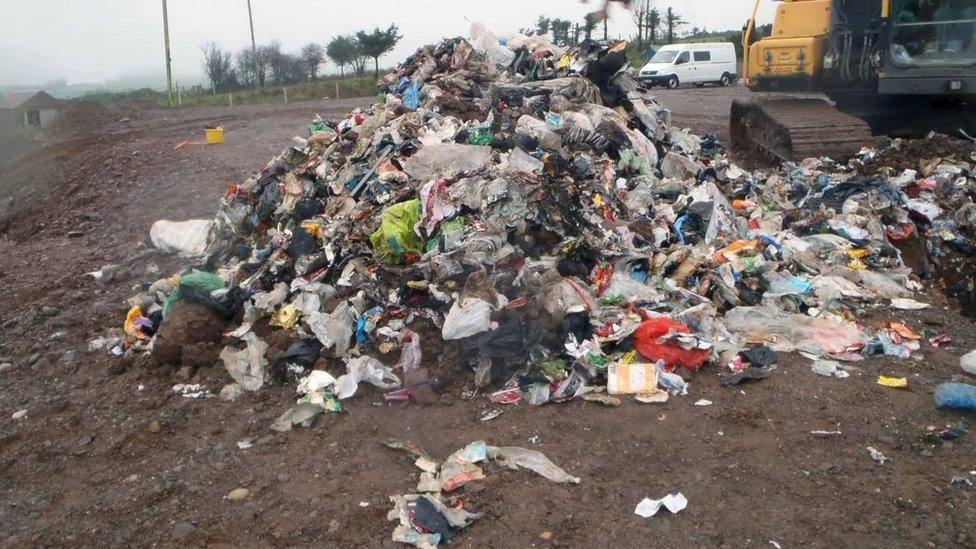
The dumps were located in all six counties of Northern Ireland
Sixty-six convictions were secured in the past decade for illegal landfill against individuals who collectively avoided more than £22m of landfill tax.
The dumps, located in all six counties of Northern Ireland, contained nearly 750,000 tonnes of waste.
However, these figures do not include the cost, financial or environmental, of cleaning up the sites.
They also exclude sites which have been found, but for which no conviction has yet been secured.
A number of recently found dumps in the Newry area were estimated to have enough waste to fill two Olympic-sized swimming pools.
Ineffective sanctions
In total, there are believed to be millions of tonnes of waste illegally buried under our feet.
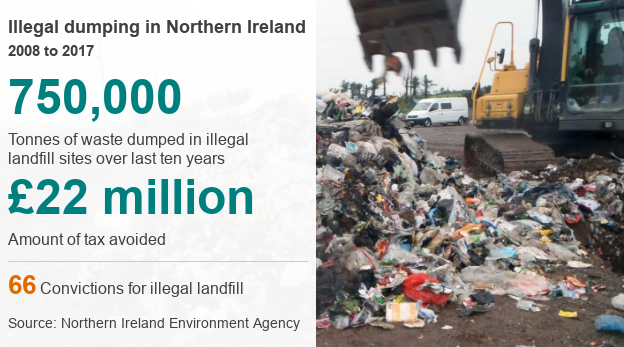
Dumps were found to contain construction materials, plastics, household, skip, commercial, hazardous, metal, asbestos, municipal, oils and controlled waste, according to the NI Environment Agency.
The dumps do not relate to fly-tipping or small-scale dumps - but larger landfills containing between 525 and 56,741 tonnes.
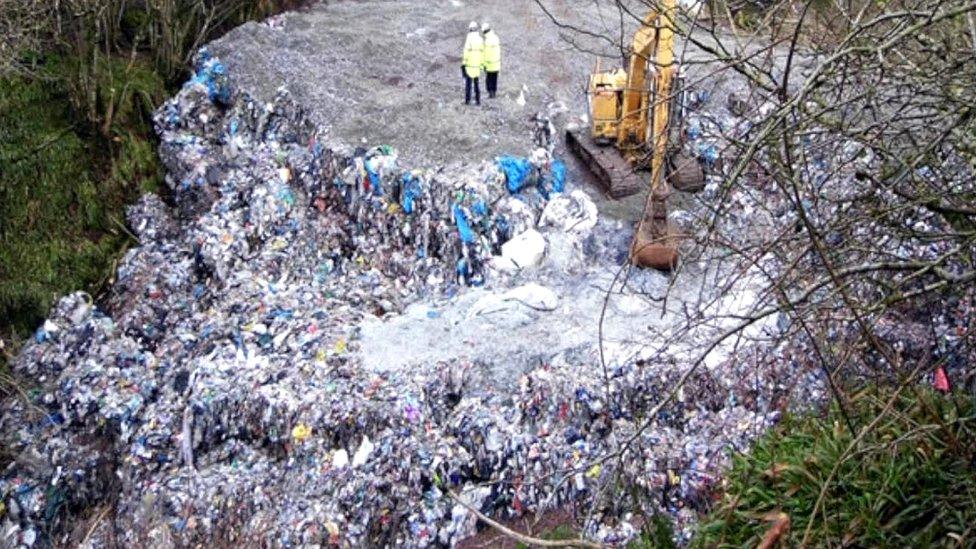
Dumps were found to contain construction materials, plastics, household, skip, commercial, hazardous, metal, asbestos, municipal, oils and controlled waste
Landfill tax was introduced in a bid to reduce the amount of waste sent to landfill sites by way of encouraging recycling, waste recovery and composting.
At present, landfill tax rates range from £2.70 to £86.10 per tonne - meaning huge sums can be saved by avoiding paying it.
According to Dr Ciara Brennan, a lecturer in environmental law at Newcastle University, illegal dumping persists because penalties fall well short of the amount of money offenders can make.
"As rates of landfill tax increase, it becomes possible to make a lot of money by avoiding paying it by dumping waste illegally through the countryside," she said.

Dr Ciara Brennan said illegal dumping persists because penalties fall well short of the amount of money offenders can make
"One of the critical issues whenever you are responding to environmental crime is to impose a sanction that creates a deterrent to waste law.
"The sanctions to date haven't created that deterrent."
Analysis of data provided to the BBC by the Northern Ireland Environment Agency shows that in the last two years offenders who avoided more than £6m of landfill tax were fined just £17,000.
New penalties
It is for this reason that HMRC is currently putting forward legislation that would make illegal dumpers liable for unpaid landfill tax.
The Department for Agriculture, Environment and Rural Affairs (DAERA) confirmed the new penalties will come in to force from 1 April.
Irrespective of this, the Northern Ireland Environment Agency continues to conduct investigations into illegal dumps, with Derek Williamson, the organisation's head of controls and operation unit, stating that as many as 80 are currently being conducted.
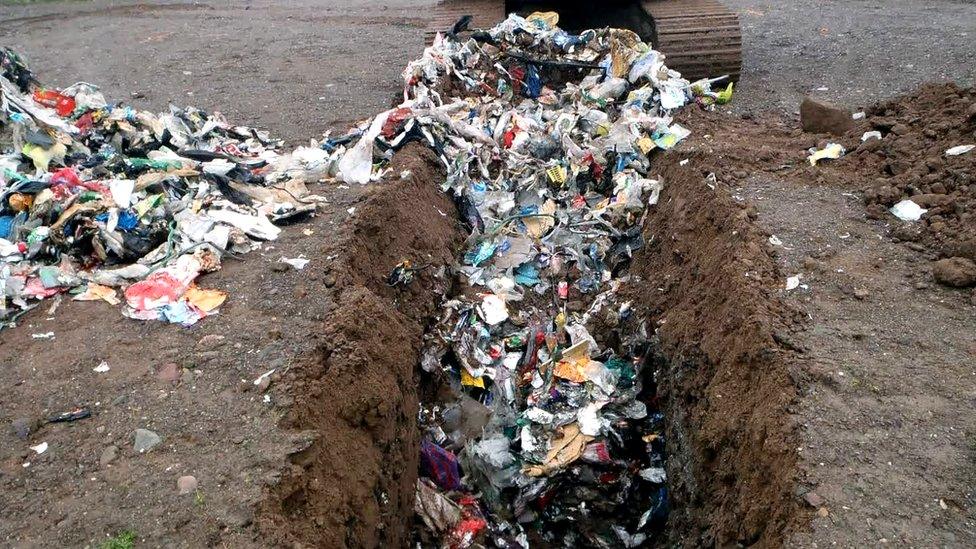
At present, landfill tax rates range from £2.70 a tonne to £86.10 a tonne - meaning huge sums can be saved or made by avoiding paying it
"Very recently we discovered a number of dumps in the Newry area which we estimate at this early stage, [contained] more than 4,500 tonnes of waste," he said.
"That's the equivalent of more than two Olympic sized swimming pools."
Environmental impact
According to James Orr of Friends of the Earth, such dumps can be found in every corner of Northern Ireland.
"This is an issue that happens in many townlands in every county of Northern Ireland," he said.
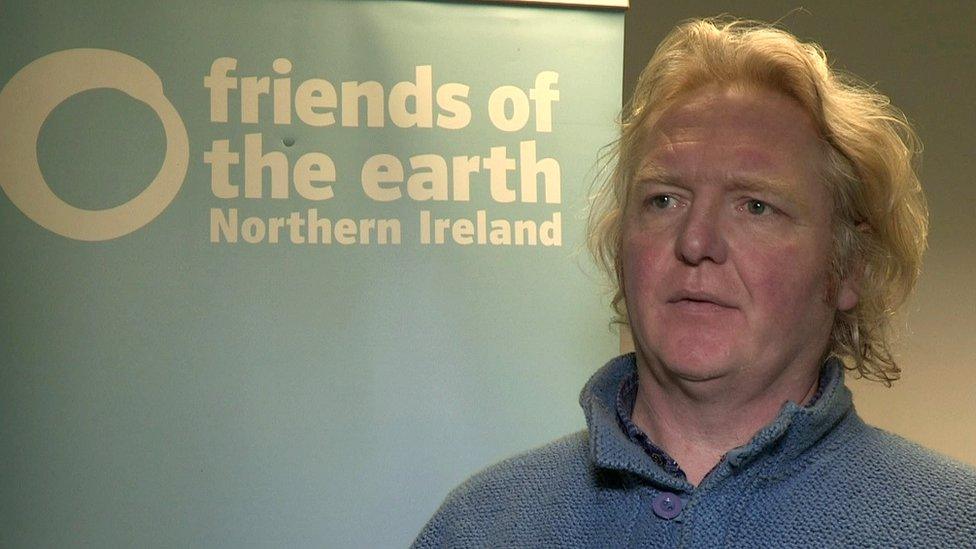
James Orr said dumped material ends up in the water people drink and contaminates the soil people farm with
"I could bring you to places very close to Belfast, to very remote places in Armagh and Tyrone.
"This material ends up in the water that people are drinking. It ends up contaminating the soil that we farm with."
But whilst the liabilities may dissuade individuals from illegally dumping in future, it is unlikely to pay for the removal of the millions of tonnes of waste believed to be illegally deposited under our feet.
This, Dr Brennan said, would cost "hundreds of millions of pounds."